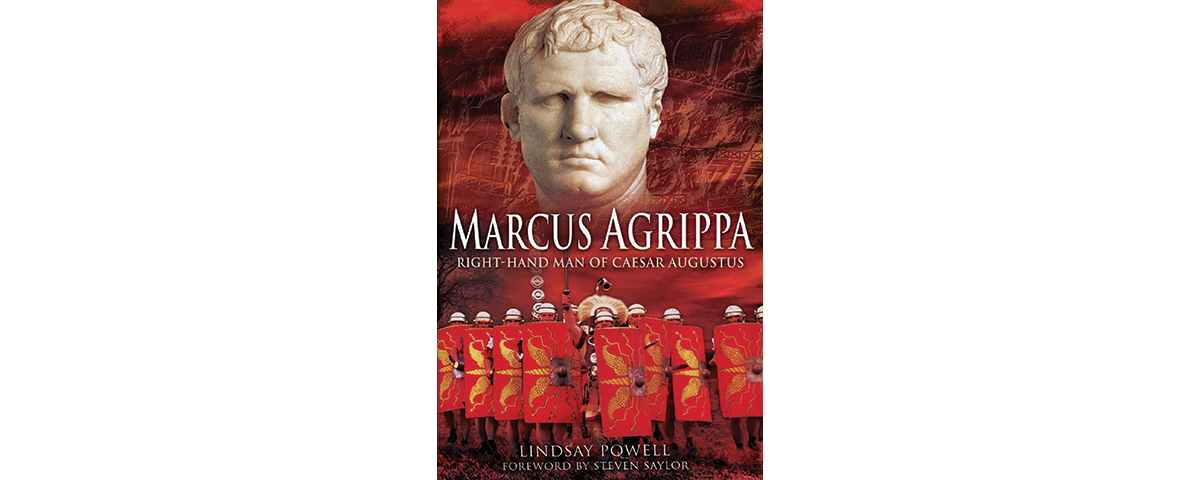Marcus Agrippa: Right-Hand Man of Caesar Augustus, by Lindsay Powell, Pen and Sword Books, Barnsley, United Kingdom, 2015, $39.95
Marcus Vipsanius Agrippa (63–12 BC) was a Roman soldier and official whose influence on the foundation of the Roman empire was perhaps even greater than that of Augustus himself. Agrippa reorganized the Roman navy with new ships, tactics and weapons, and it was Agrippa who crushed Sextus Pompey at the 36 BC battles of Mylae and Naulochus, giving Augustus control of Italy and Sicily. Agrippa was present at every major battle Augustus fought, and in some Agrippa commanded the troops while Augustus remained incapacitated in his tent. Agrippa’s brilliant victory at Actium in 31 BC secured Augustus undisputed mastery over the Roman empire and changed Western history. Agrippa won a great victory over the Aquitani in Gaul and suppressed disturbances in Germany, being the first Roman since Caesar to invade Germany. As aedile (public works director) of Rome, Agrippa modernized the city’s water supply system, built the first Roman bath and designed the Pantheon.
With the civil war won, Augustus turned to Agrippa to solve the problems of reconstruction; the reorganization of Rome’s government and political system; the administration of the capital city and of the provinces; the re-establishment of the imperial frontiers; and the reform and reorganization of the army and navy. Agrippa contributed to solving these problems, although Roman historians credit Augustus with the achievements. Agrippa’s efforts largely made possible the establishment of the new Roman imperial order.
Ancient historians largely ignored Agrippa, and we have only Cassius Dio and Nicolaus of Damascus as ancient sources of his life. Only two modern works on Agrippa have been published (one in French, the other in English), and both date from the 1930s. Powell’s book exceeds both in scholarship, depth of research and comprehensiveness. Well written, perfectly organized and a treasury of information, it is certain to become the definitive work on one of Rome’s greatest, if forgotten, men.
—Richard A. Gabriel





